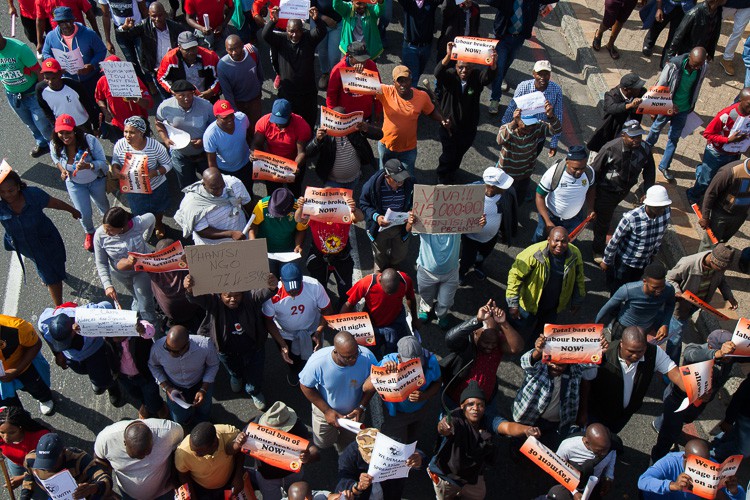Bus drivers vow to keep fighting for safer conditions
“We’ve managed to pry open the door” says SATAWU after deal ends strike
Bus drivers’ unions have vowed to keep fighting for safer working conditions following an agreement with employers which brought the national bus strike to an end over the Easter weekend.
SATAWU, TAWUSA, and TAWU agreed to the terms of the agreement on Friday, 14 April, while NUMSA initially refused to accept before agreeing to the deal the following day.
“We felt the agreement didn’t go far enough,” said Phakamile Hlubi, NUMSA’s acting national spokesperson. “They went ahead and agreed without consulting us,” she said of the other unions.
Labour and employers agreed to a deal including: a 9% across-the- board wage increase backdated to 1 April 2017, an overtime rate of 1.5 times the normal hourly rate (up from 1.3 times the normal hourly rate), a 10% increase in allowances, including allowances for travel, subsistence and night shift, and a R400 per month allowance for working as a second driver. Formerly, relief drivers were not paid unless they actually drove the bus.
Unions had demanded a two-digit wage increase, medical aid, more employee control of overtime shifts schedules, and new “spread-over” hours. Some drivers had been working three hours, breaking for eight hours and then working a further five hours. The strikers wanted this spread reduced to 12 hours a day, while employers offered 14 hours a day. No agreement was reached on this.
“Spread-over shifts are one of those things we’ll have to keep engaging with,” said Zanele Sabela, SATAWU media officer. “We’ve managed to pry open the door.” The length of breaks during shifts has also not been altered. But, Sabela said, the 9% wage increase was “a real gain” because it was three percentage points above inflation.
NUMSA was less enthusiastic. “Even though we wanted more for our members, we are satisfied that our workers are happy with the deal,” said Hlubi to GroundUp.
Meko Magida, spokesperson for the SA Bus Employers’ Association and Commuter Bus Employers’ Organisation, said the agreement was a blow to employers. “It was not fair at all for employers,” he said. “It was one of the most expensive deals.”
“Collective bargaining is meant to be when all parties come up with a reasonable and affordable agreement,” Magida said. “We need to appeal to employees to be careful when spending the limited resources,” said Magida. “There is no winner.”
The agreement was reached after Labour Minister Mildred Oliphant met unions, employers and the Bargaining Council on 14 April.
Sabela said the involvement of the Labour Department would aid bus drivers in subsequent negotiations. “There will be much closer engagement with the Labour Department in the future,” she said.
“The agreement lasts for one year,” said Hlubi, of NUMSA. “Of course we’ll go back to negotiations after the year is over.”
Support independent journalism
Donate using Payfast

Don't miss out on the latest news
We respect your privacy, and promise we won't spam you.
© 2017 GroundUp. 
This article is licensed under a Creative Commons Attribution-NoDerivatives 4.0 International License.
You may republish this article, so long as you credit the authors and GroundUp, and do not change the text. Please include a link back to the original article.

